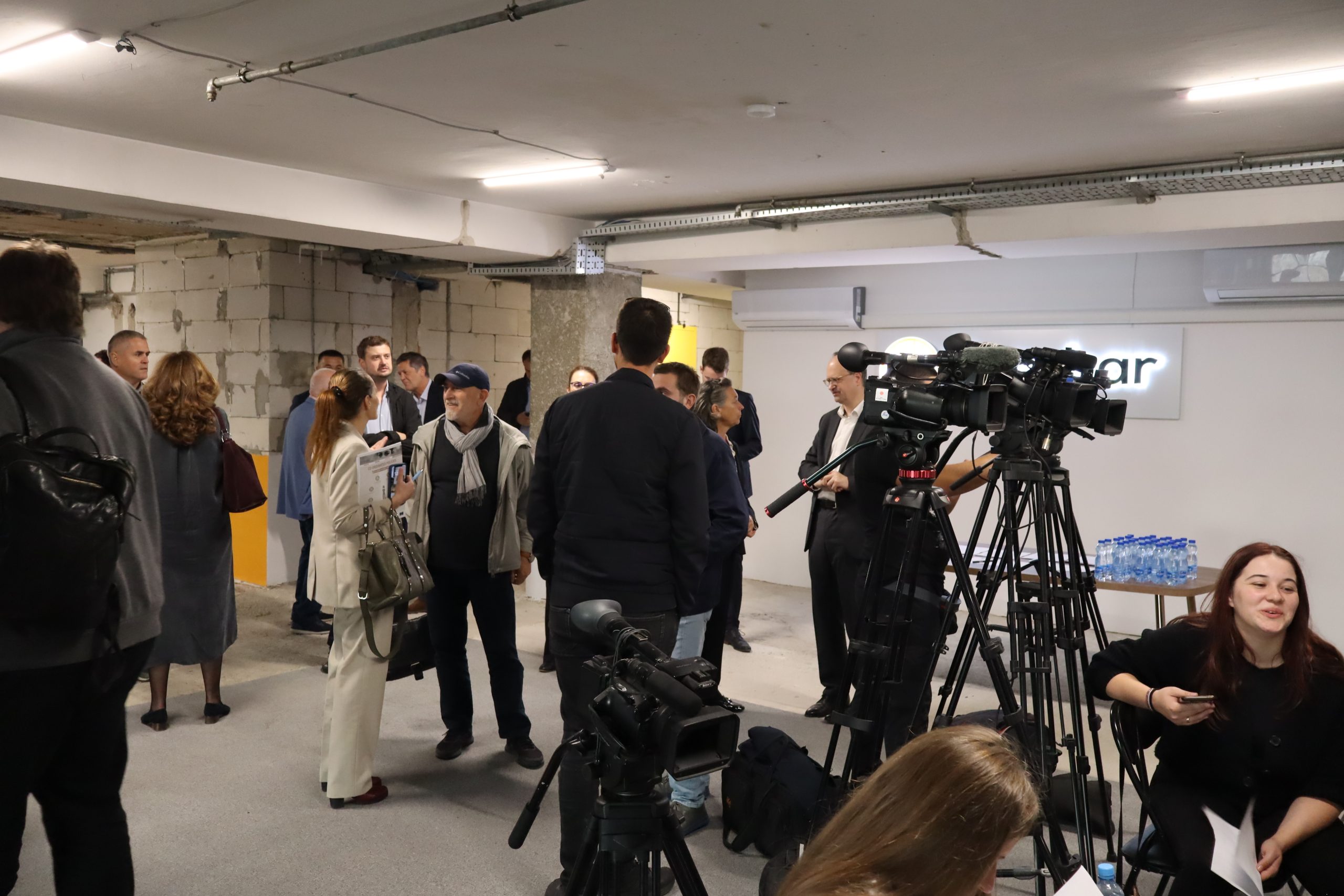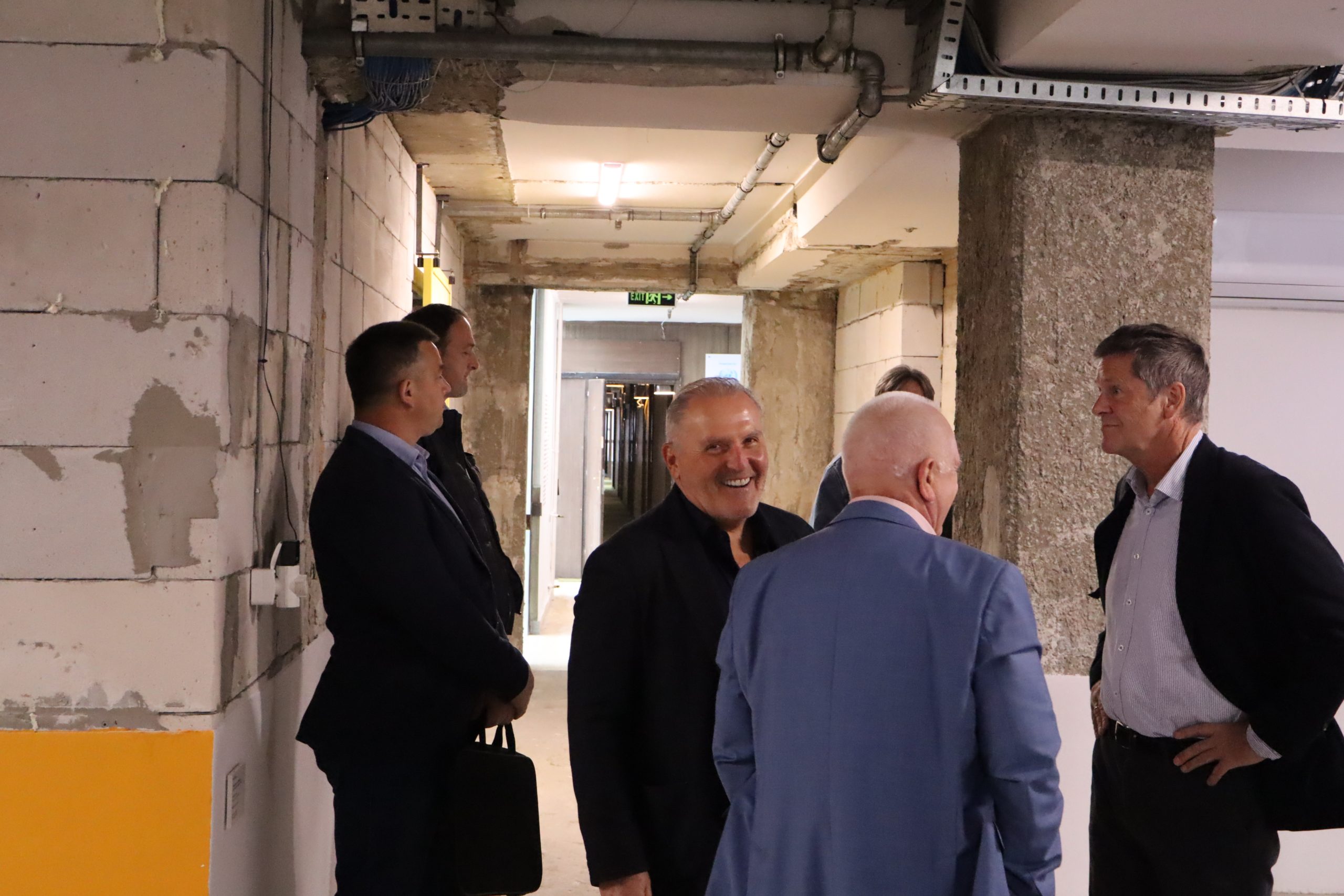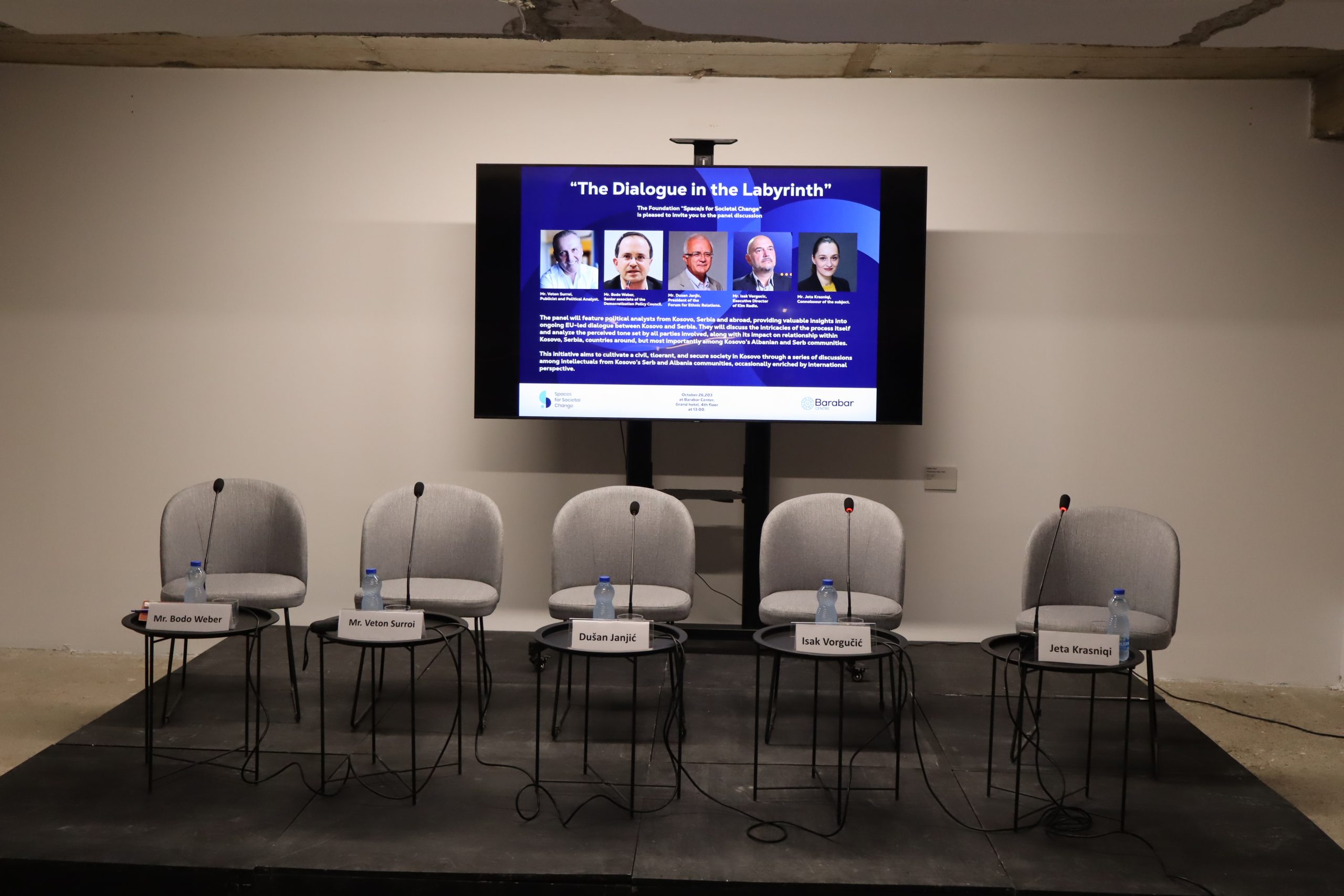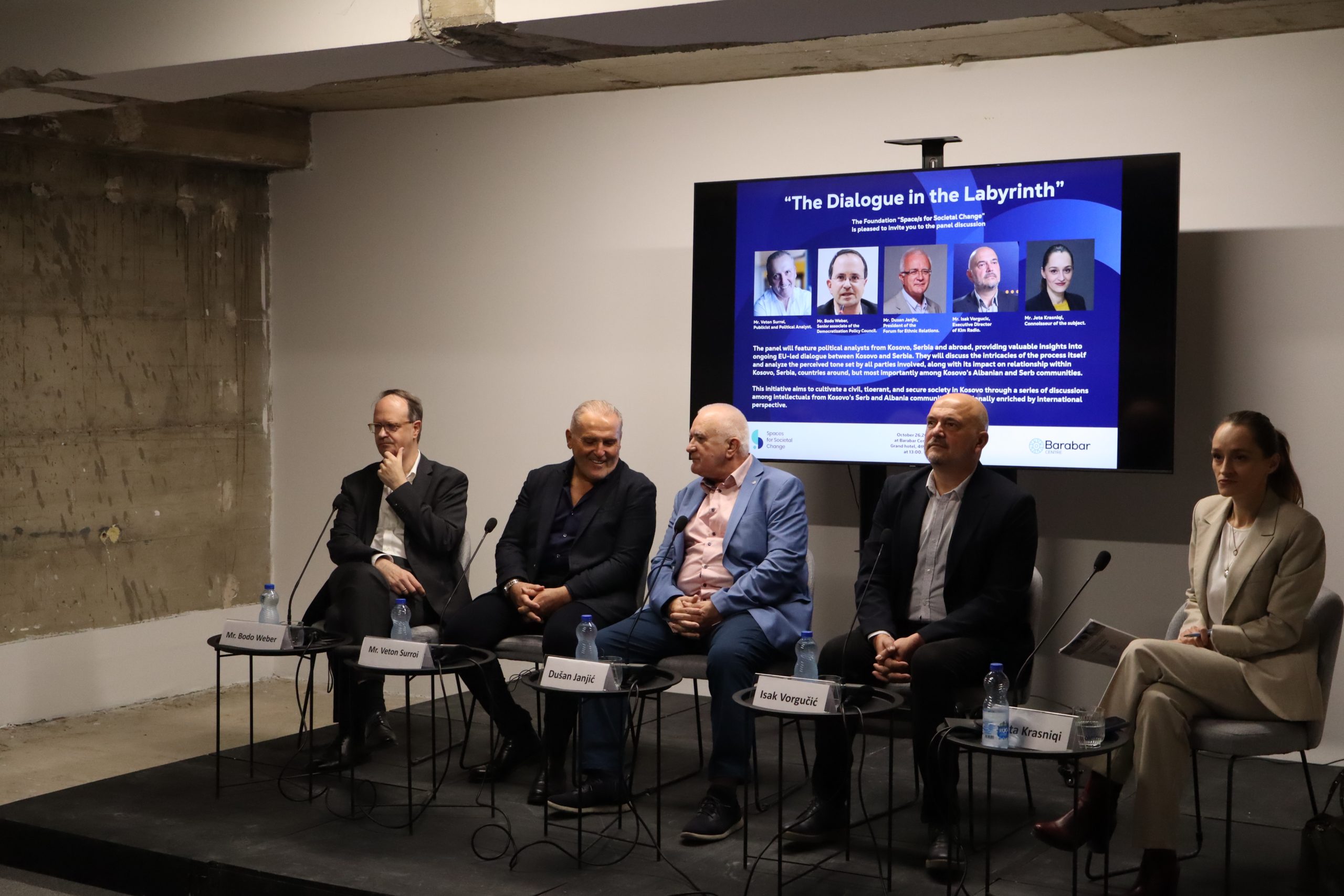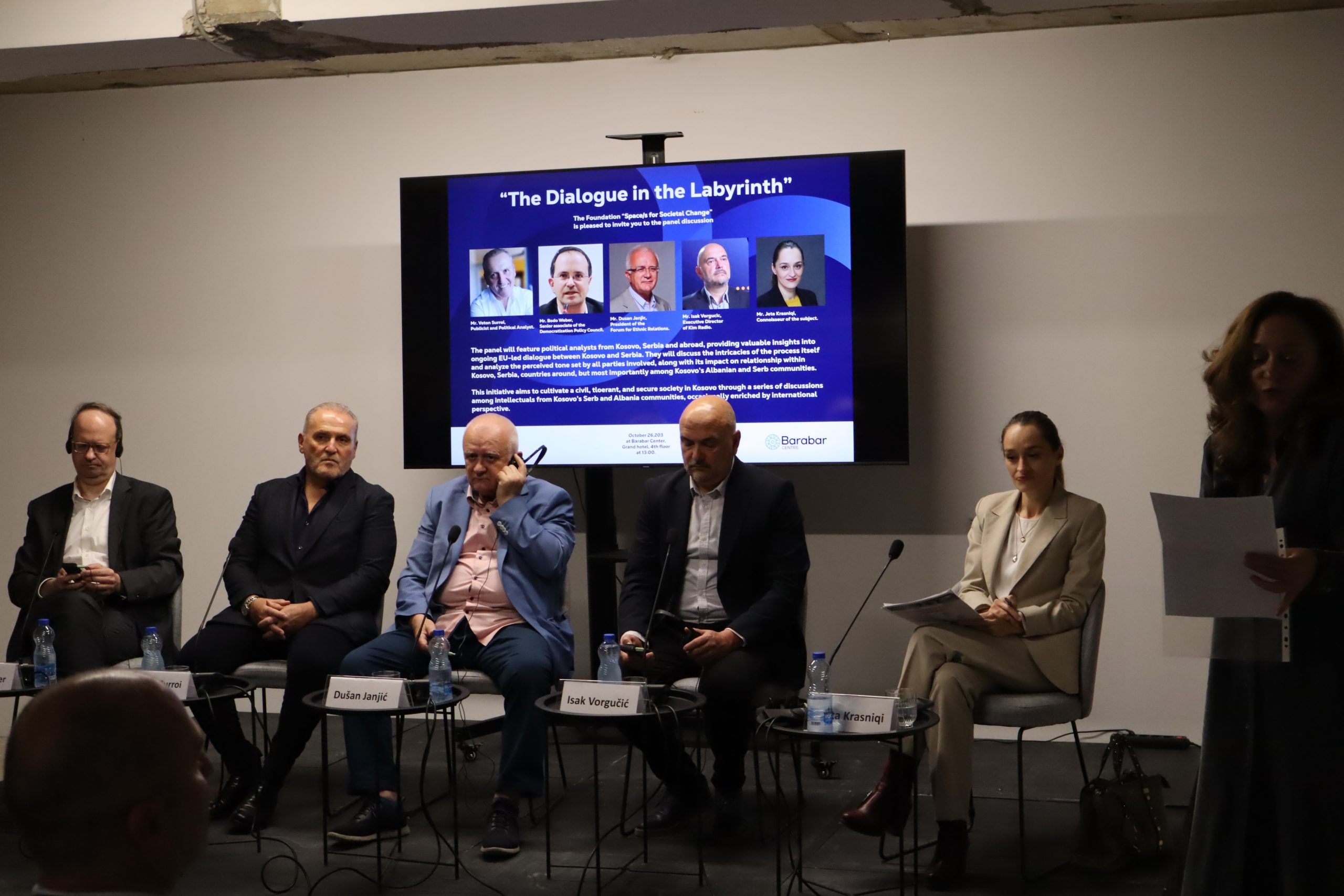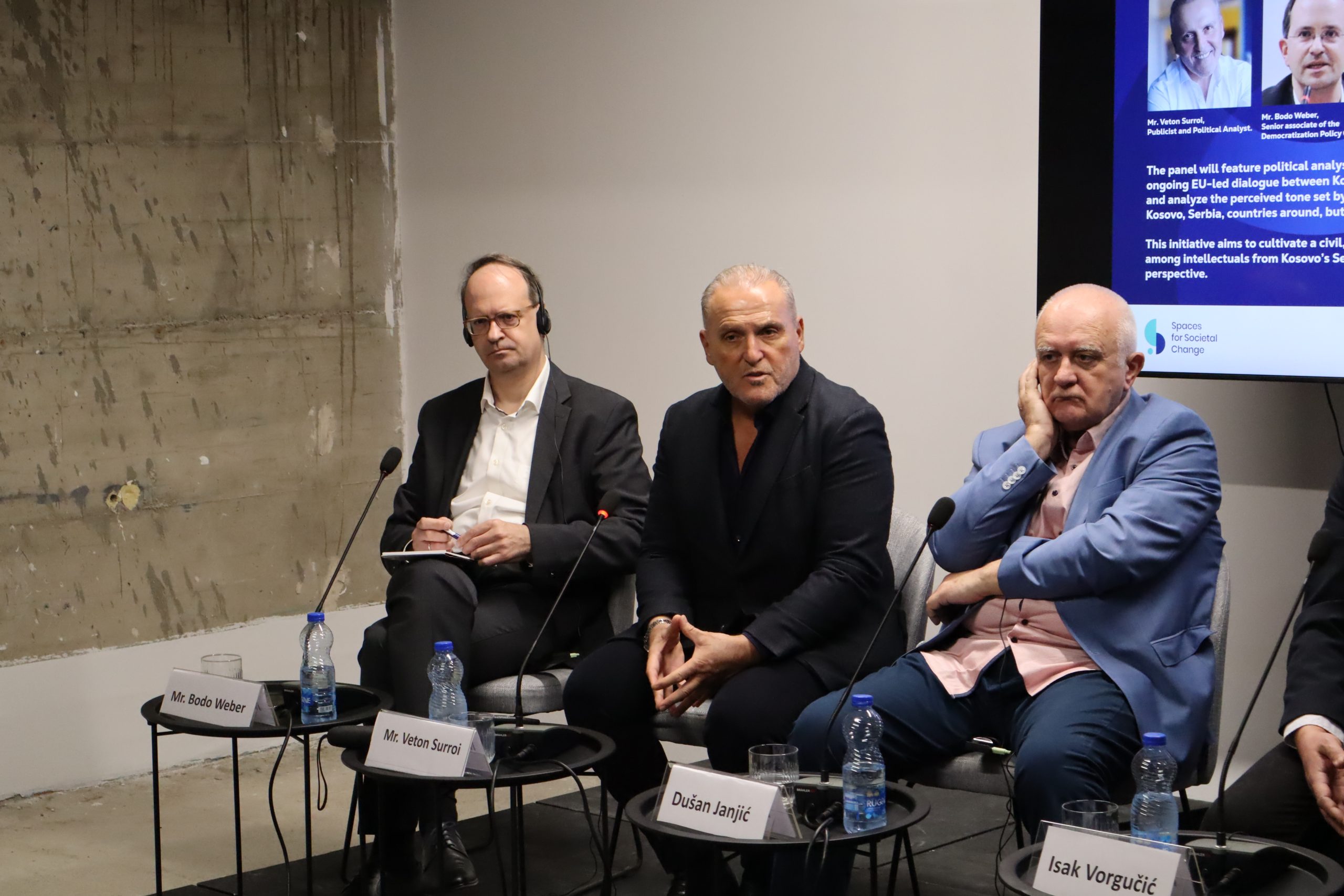The aim of this initiative is to address current challenges in interethnic relations by fostering open and constructive dialogue and communication between Kosovo’s Serb and Albanian communities, while also being inclusive of other communities residing in Kosovo. This project seeks to build trust, reduce tensions, and promote reconciliation, mutual understanding, and social cohesion within Kosovo.
To achieve these objectives, the project has outlined a series of activities, including organizing panel discussions with intellectual communities from both sides.
Additionally, the project aims to establish a sustainable space to foster decent dialogue, setting comprehensive guidelines, and extending the culture of respectful communication to various regions in Kosovo.
Panel discussion “Dialogue in the Labyrinth!”, October 26th, 2023, Barabar Center, Grant Hotel, Pristina
In response to recent events in Kosovo, the NGO Spaces for Societal Changes – Spaces organized a panel discussion titled “Dialogue in the Labyrinth!” at the Barabar Center in Pristina. The discussion aimed to explore potential ways to restart diplomatic negotiations and resolve the current status in the normalization of relations between Kosovo and Serbia.
Prominent Kosovar, Serbian, and international political analysts and experts participated in the panel, providing insights into the dialogue process between Kosovo and Serbia under the auspices of the EU. The participants included Veton Surroi, a publicist and political analyst; Bodo Weber, a senior associate of the Council for Democratization Policy; Dušan Janjić, president of the Forum for Ethnic Relations and Isak Vorgučić, executive director of RTV Kim.
The outbreak of protests in May in northern Kosovo and armed conflicts in the village of Banjska between the Kosovo police and a Serbian armed group significantly worsened the limited progress made so far in integrating the Kosovo Serb community and Serbian society, according to the panelists.
Kosovar publicist and analyst, Veton Surroi, stated that the entire dialogue process represents a competition in stubbornness.
“Stubbornness of insistence that there is an agreement between Kosovo and Serbia and stubbornness of the fact that there is no acceptance that such an agreement exists. In this first stubbornness, we have the European Union, now the Quint, including the US envoy, who insist that there is an agreement reached between the parties. This is the first and most substantial problem. In this race of stubbornness, the facts win over the EU description, because if the normalization is what we have seen since September last year until now, then what is abnormality? If Kosovo and Serbia agreed to build normal relations between themselves, that is, why do we end up with Banjska from such an agreement? It’s a cycle that shows stubbornness,” he concluded.
On the other hand, Isak Vorgučić, the director of RTV KIM, believes that the Brussels Agreement from 2013 is not something that Kosovo Serbs participated in, but rather an agreement between Belgrade and Pristina.
“Kosovo was expected to offer Serbs, absurdly, a Community of Municipalities with a Serbian majority, which, in other words, means completely abolishing parallel institutions that still exist in Kosovo, i.e., fully integrating those institutions into Kosovo. And now we have Serbs insisting on the Community, which would mean the complete merging of institutions into Kosovo. At the same time, Kosovo does not want to organize such an organization,” Vorgučić emphasized.
Bodo Weber, a senior associate at the Council for Democratization Policy in Berlin, believes that political will is very low.
“The issue of the Association of Serb-majority municipalities is the most misunderstood aspect of the political dialogue. The original political dialogue of 2012-13 with its incremental approach, which resulted in an initial historical breakthrough in solving the Serbia-Kosovo status dispute, got “lost in translation” due to the lack of a long-term strategy, a master plan, with Belgrade, and later also Prishtina exploiting that strategic vacuum, manipulating the process. February 24, 2022, the Russian aggression in Ukraine provided a unique window of opportunity for a strategic U-Turn of the West on Serbia, that the West so far missed to seize,” Weber opined.
Dušan Janjić pointed out the lack of transparency in the process imposed by the European Union.
“We have come to a situation where the agreement, which started as a Franco-German initiative, has turned into an agreement on the path to normalization, essentially a communist manifesto by Karl Marx. It’s a wonderful idea. It’s a future that will come one day,” Janjić believes.
The panel also discussed how the Serbian community feels about this process and who should represent their position.
“Dialogue in the Labyrinth!” is part of the project “Promoting Social Decency in Community Discussions,” implemented by “Spaces for Societal Change” – Spaces, financially supported by the Barabar Center.
Video from panel discussion on 26th of October 2023


